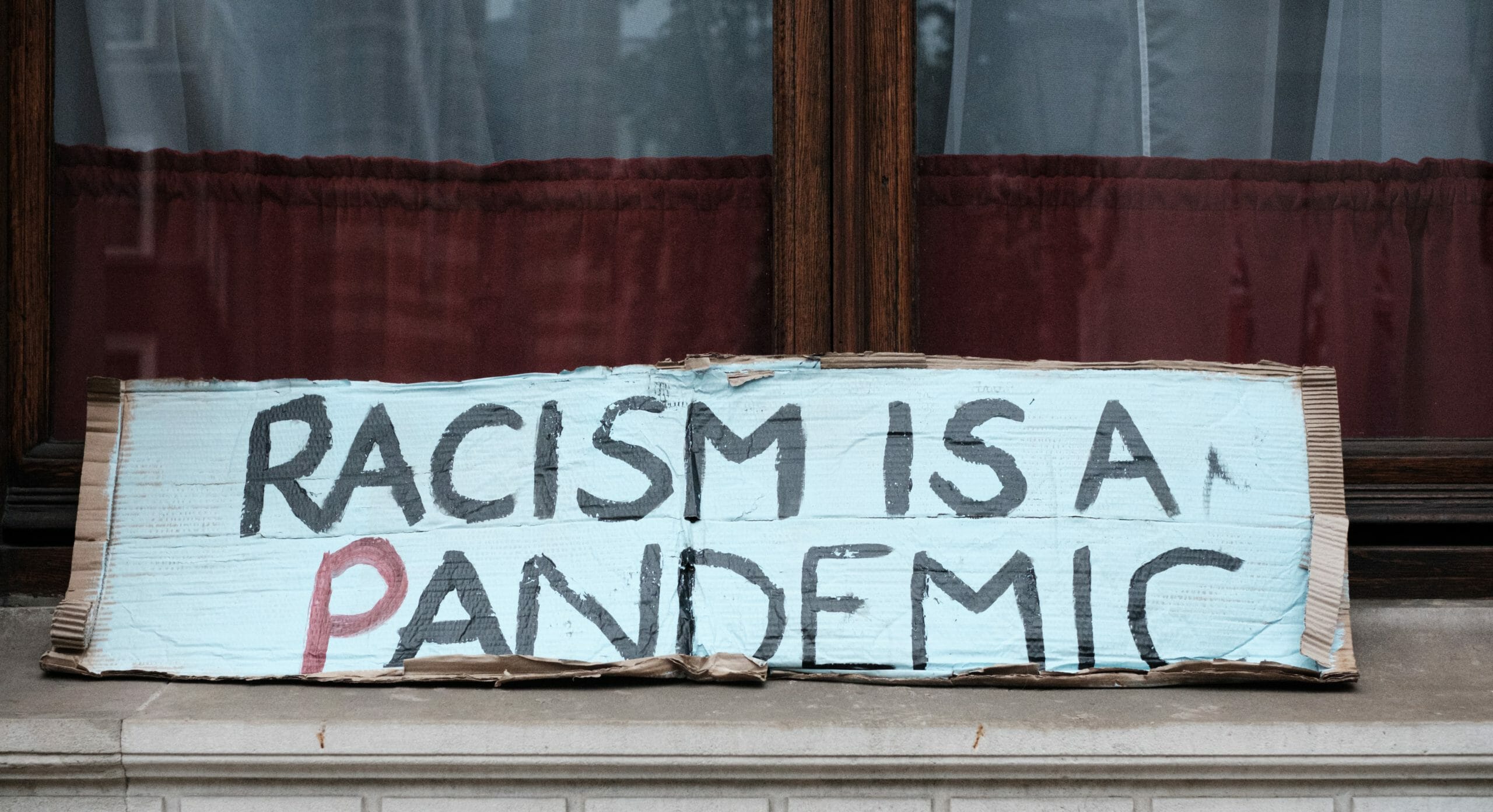
Photo by Ehimetalor Akhere Unuabona on Unsplash
Lent 2021 is the perfect time to relearn confession, penance, and ‘costly grace’

Rev. Dr. Corey Fields
February 10, 2021
“[He] slumped in the shadows, his face in his hands, not daring to look up, [and] said, ‘God, give mercy. Forgive me, a sinner.’”
That is Eugene Peterson’s rendering of the tax collector’s words and actions in Jesus’ parable in Luke 18 in The Message. In great contrast to the self-righteous Pharisee, the tax collector owns his shame and brokenness and is left with only a plea for mercy.
A chapter later, we meet another tax collector named Zacchaeus. In contrast to the way this story is sometimes taught to children (Jesus notices a cute little short guy in a tree), this story features a man presumably hated for his role in carrying out Rome’s unfair taxation, and he tells Jesus that he will give away half his possessions to the poor and pay back fourfold anyone he has cheated (which tax collectors were known to do). Scholars debate whether this is a confession of wrongdoing, but it certainly has the air of penance.
Lent comes around every year in the Christian calendar as a time of reflection, self-denial, and confession. It has traditionally been a time of some kind of fasting or abstaining from certain things. If there’s ever a year to rediscover Isaiah’s words about ‘the fast God has chosen,’ it’s this year: “…to loose the chains of injustice and untie the cords of the yoke, to set the oppressed free and break every yoke?” (Isa. 58:6 NIV). In particular, maybe this Lenten season is the time to get serious about loosening our chains of racism.
The United States has always had a racism problem. Ibram X. Kendi, in his book “Stamped From the Beginning,” masterfully lays out how racist ideas have permeated U.S. law and policy and have been consistently reinforced by everything from the courts to entertainment and literature. Michelle Alexander, in her book “The New Jim Crow,” compiles the stunningly pervasive examples of the purposeful disadvantaging of people of color in the United States, bringing all the receipts of how it has played out in housing, education, and especially incarceration.
The January 6 siege of the U.S. Capitol is already being used as a sort of lowest common denominator for denial. A Washington Post – ABC News poll found that 89% of a sample of American adults oppose the January 6 violent attack on the Capitol. It should be higher than that. That is easy to condemn. What is much harder to accept is that it was only the most violent tip of the iceberg.
We humans have an uncanny propensity to simply dismiss that which we don’t want to believe. The mythos of the United States as the shining beacon of freedom for all people is powerfully tied to white American identity, so despite how much clear historical and modern-day evidence there is to the contrary, so many simply refuse to see it. In an article for The Atlantic, Kendi notes the current chorus of, “This is not who we are” as the latest form of denial. Although the recent attack had certain unique characteristics and targeted a federal building, Kendi points out that this is not as unprecedented as we have made it sound. What about the Colfax Massacre? The Battle of Liberty Place? The Wilmington, NC massacre? The Tulsa race massacre? It is a hard truth to accept, but this kind of thing has happened virtually every time people of color have increased their power and self-determination and the white establishment has run out of other ways to stop it. It is no coincidence that recent violence happened after an election in which Black voters had an historic effect on state and national races.
Lent comes around every year in the Christian calendar as a time of reflection, self-denial, and confession. It has traditionally been a time of some kind of fasting or abstaining from certain things. If there’s ever a year to rediscover Isaiah’s words about ‘the fast God has chosen,’ it’s this year: “…to loose the chains of injustice and untie the cords of the yoke, to set the oppressed free and break every yoke?” (Isa. 58:6 NIV). In particular, maybe this Lenten season is the time to get serious about loosening our chains of racism.
This denialism also comes in more tricky and less recognizable forms. It is embedded in the idea that we are somehow a post-racial society because we have had a Black president. It also comes in the popular but false equivalence between the storming of the Capitol and the occasional violence and destruction surrounding Black Lives Matter protests. The storming of the Capitol was fully premeditated and enthusiastically planned. The Armed Conflict Location & Event Data Project (ACLED) analyzed 7,750 Black Lives Matter protests across the United States over the summer of 2020, and found that 93% were peaceful, with some of the violence that did happen being instigated by police or counter-protesters. Nevertheless, the narrative that they are somehow equal has caught on, and has the effect of demonizing the Black Lives Matter cause while softening white violence.
Denial is the polar opposite of the Christian practice of confession and penance. So is the escapism of drawing back and saying, “All y’all need to calm down.” Despite the many and oft memorized verses in the Bible that call for humble confession and repentance, we seem to struggle to do it. When it comes to racism in America, too many of us seem to speak up only when things reach a boiling point and our own safety and wellbeing are jeopardized.
The mantra that we need to “move on” is not compatible with confession and penance. After years of seeing white evangelicals give a pass to many forms of cruelty and intolerance (in exchange for hearing what they want to hear on the issue of abortion), calls are growing for us to all of a sudden make nice and try to get along again. But forgiveness and reconciliation come after accountability and the “bearing of fruit in keeping with repentance” (Matt. 3:8). To expect otherwise is a page out of the abuser’s playbook. “I’m sorry I beat you. Please take me back, put this behind us, and I’ll never do it again.”
Dietrich Bonhoeffer called this “cheap grace.” “Cheap grace is the preaching of forgiveness without requiring repentance, baptism without church discipline, Communion without confession, absolution without personal confession. Cheap grace is grace without discipleship, grace without the cross, grace without Jesus Christ, living and incarnate.” By contrast, “Costly grace is the gospel which must be sought again and again and again, the gift which must be asked for, the door at which [one] must knock.”[i]
Unlike South Africa post-apartheid, the United States has never had its own Truth & Reconciliation Commission. We’ve never had an intentional, painful, full-on look at what we have done after which there is accountability and skin put in the game to make amends. But while we wait (in vain?) for that to happen on a national level, perhaps the Lenten season is the perfect time for it to happen anew in the church. That would be a true revival: knocking on the door of our racial reconciliation, doing penance in the tradition of Zacchaeus, and to even be found “slumping in the shadows” begging for forgiveness, if need be.
Many options and resources are available to congregations. If your congregation needs to find its footing and take first steps towards racial reconciliation and dialogue, you may find Latasha Morrison’s “Be the Bridge” curriculum helpful. The National Council of Churches has an ecumenical resource page. Some communities have been doing a 21-Day Racial Equity Challenge, usually sponsored by the YWCA and/or The United Way. You can use the resources even if your state or locality isn’t promoting it.
Jesus told us to steer away from showy, public prayer, but there is also an important public witness aspect to forgiveness. That was the point behind the baptism of John (Matt. 3:1-6). Public confession helps confirm our sincerity and encourages others to do so as well. Faculty members of the evangelical Wheaton College signed a statement that said, in part, “We repent of our own failures to speak and to act in accordance with justice, and … we grieve over the inadequate level of discipleship that has made room for this type of behavior among those who self-identify as Christian.”
I would argue that we need a resounding chorus of such confessions this year. Let’s choose that kind of fast.
The Rev. Dr. Corey Fields is senior pastor of Calvary Baptist Church, Newark, Del.
The views expressed are those of the author and not necessarily those of American Baptist Home Mission Societies.
[i] Bonhoeffer, Dietrich. The Cost of Discipleship. New York: Touchstone, 1995, 44-45.


